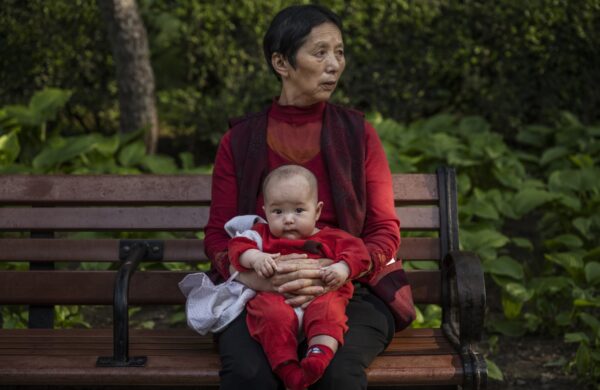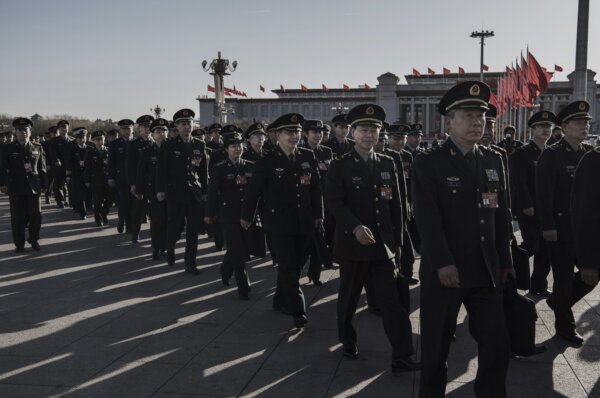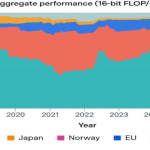![]() China is facing a deepening demographic crisis, with birth rates in several populous provinces plunging over 50 percent in 2024 from their peaks in 2016 or 2017. This sharp decline has already triggered a significant drop in preschool enrollment and the closure of tens of thousands of preschools in recent years.
China is facing a deepening demographic crisis, with birth rates in several populous provinces plunging over 50 percent in 2024 from their peaks in 2016 or 2017. This sharp decline has already triggered a significant drop in preschool enrollment and the closure of tens of thousands of preschools in recent years.
A recent study by data firm MyCOS reveals that even traditionally high-fertility regions have been hit hard: Shandong Province, once China’s most fertile, saw a 63 percent decline in births, while Hunan reported a 60 percent drop. Similar trends have been observed in Hubei, Anhui, and Jiangxi—all among China’s 15 most populous provinces.
Jin Yan, a 1990s-born resident of Jinan, Shandong Province, told the Chinese-language edition of The Epoch Times that half of her classmates are single, unable to afford marriage—let alone children.
Even those who do marry rarely consider having kids, she said.
“Among my friends, everyone complains about financial pressure. Those who have kids say the costs are overwhelming. Many people are simply too afraid to have children,” she said.
Jin and her husband are both currently unemployed and struggling to repay the mortgage on a home they bought at the time of their marriage.
Wang Li (also a pseudonym), a woman born in the 1980s, remains unmarried and unemployed. She told the Chinese-language edition of The Epoch Times that social attitudes are shifting, largely due to the pressures of daily life.
“If I can’t provide a good environment for a child, it’s better not to have one at all,” she said. “I don’t want them to suffer like me.”
She noted that in the past, choosing not to marry or have children was frowned upon but today, it is increasingly becoming the norm.
“Most of the post-1990s generation I know don’t date or plan to get married. Their view is: Why bother with marriage? Why have children? Earning for yourself and living alone is just as valid.”
A recent study by the Beijing-based Yuwa Population Research Institute revealed that the average cost of raising a child in China from birth to age 17 is 538,000 yuan (about $74,900), rising to about 680,000 yuan (about $94,700) when extended through undergraduate education. In global comparison, China ranks among the most expensive countries for child-rearing. Measured as a multiple of per capita GDP, raising a child to age 18 costs 6.3 times the average income—compared to 2.1 in Australia, 2.2 in France, 2.9 in Sweden, 3.6 in Germany, 4.1 in the United States, and 4.3 in Japan.
The sharp decline in birth rates is having a clear impact on early childhood education. According to the 2024 statistics from China’s Ministry of Education, the number of preschools in China has decreased for three consecutive years: more than 5,600 closed in 2022, a further 14,000 in 2023, and over 20,000 in 2024.
Nationwide preschool enrollment dropped to 35.84 million in 2024, down by 5 million from the previous year.
As a result, many early childhood educators have been forced to seek work in other sectors.
State media outlet Yicai reported on June 12 that some shuttered kindergartens have been repurposed as nursing homes or converted into mixed-use facilities that provide both elder care and child care services—so-called “intergenerational care centers.”
China’s demographic crisis traces back to the decades-long one-child policy implemented by Deng Xiaoping in 1979. During its enforcement, the fertility rate fell from an average of 2.9 children per woman to just 1.1 by 2015. While the government relaxed the policy to allow two children in 2016 and later three in 2021, these measures have largely failed to reverse the downward trend. China recorded its first population decline in decades in 2022, followed by a second drop in 2023.
“The Communist Party thought that simply allowing more births would trigger a population boom. That was wishful thinking,” China-based entrepreneur Zhao Jun told the Chinese-language edition of The Epoch Times. “It’s not that young people today don’t want to get married or have children; it’s just that no one can afford to. I earn 5,000 yuan (about $697) a month—how am I supposed to raise a family on that?”
Meanwhile, China’s population is aging rapidly. By the end of 2024, the number of citizens aged 60 and above reached 310 million, or 22 percent of the total population. Of that group, 220 million were aged 65 or older, making up 15.6 percent, according to the National Bureau of Statistics.











